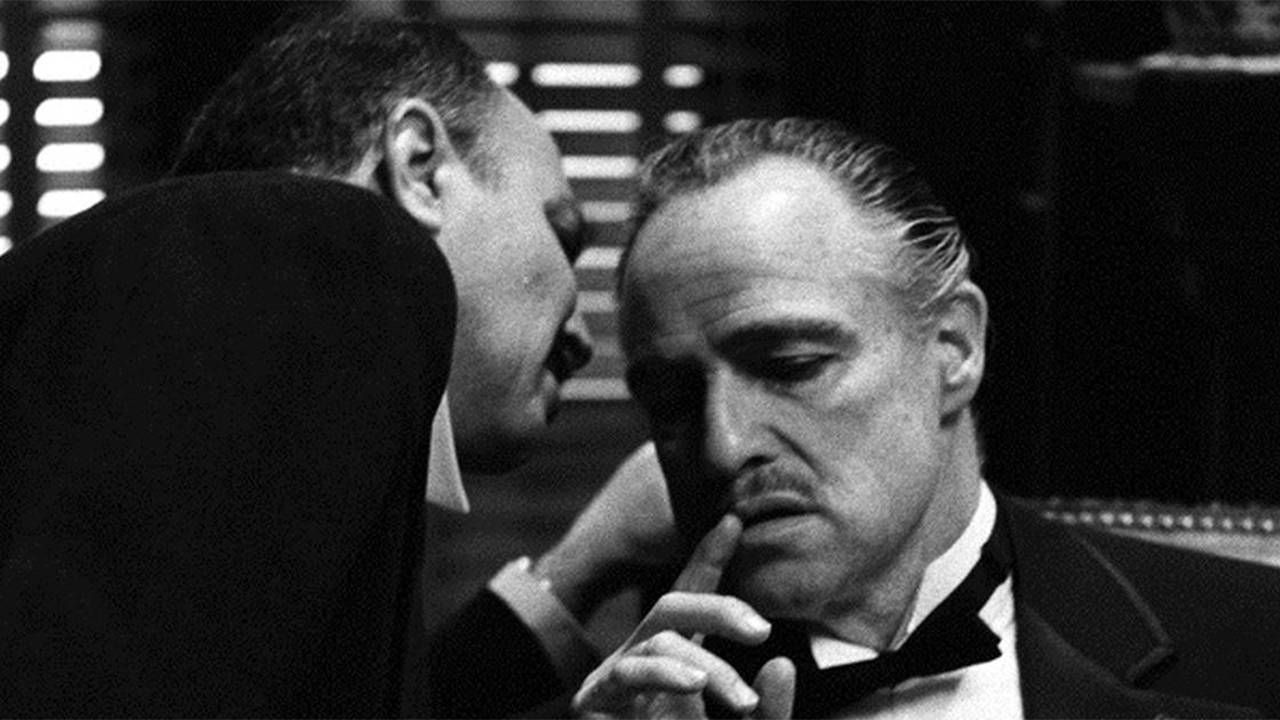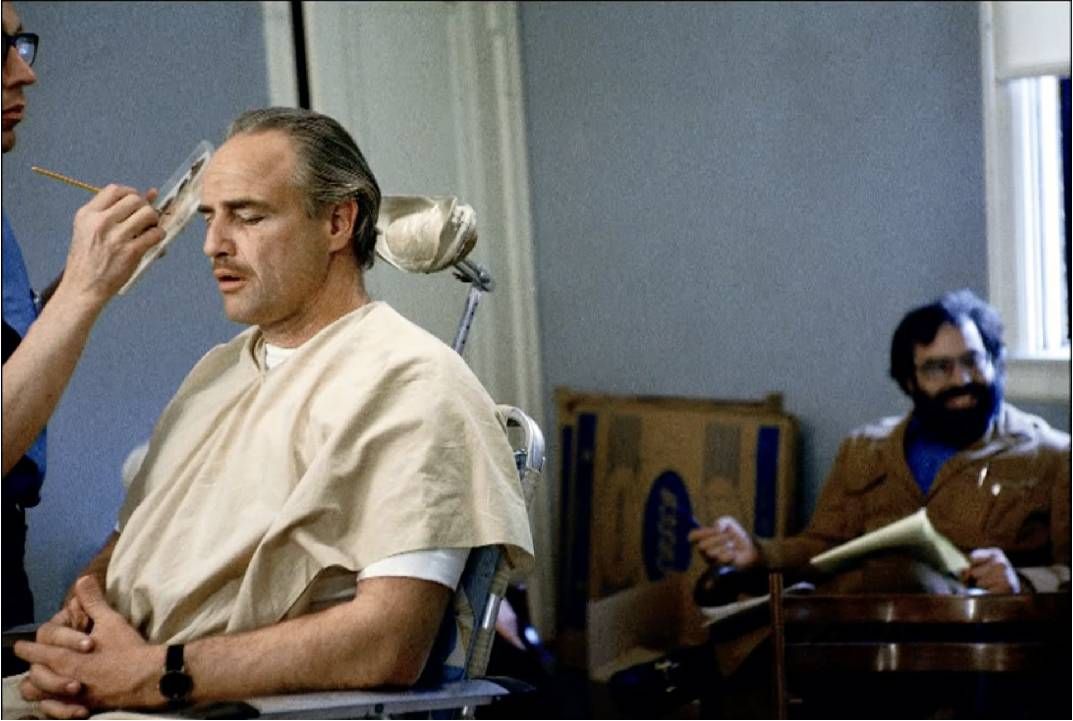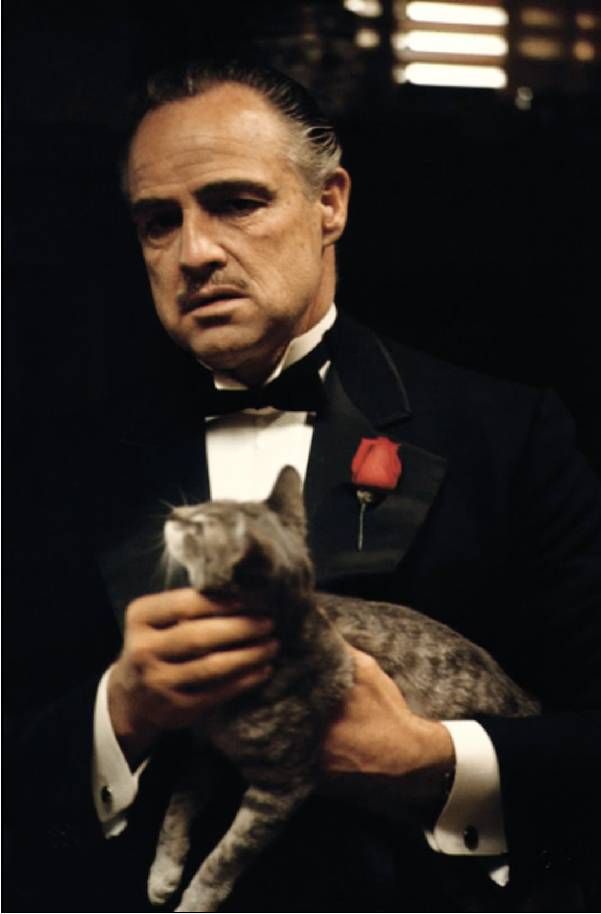An Offer You Can't Refuse: Appreciating 'The Godfather' on Its 50th Anniversary
From cinematic art to pop culture references, this epic film has been influential in multiple ways
This month, sociologists, film critics and movie buffs mark a pop culture milestone: the 50th anniversary of the release of "The Godfather," arguably the most influential film of the second half of the twentieth century.

Some loyalists will go so far as to contend that even this lofty praise is insufficient to appreciate the film. To be sure, "The Godfather," which premiered across the United States on March 24, 1972, signifies a turning point in cinema and a dividing line in our popular culture, separating movies that came out before "The Godfather" from those that arrived later.
"The film was a stunning achievement in every category of storytelling, writing, performances, cinematography, direction and music."
That's how influential "The Godfather" continues to be, particularly when it comes to inventing new ways to tell stories in movies.
"The film was a stunning achievement in every category of storytelling, writing, performances, cinematography, direction and music," noted Nell Minow, a film critic and editor at RogerEbert.com, the site named in honor of the late Roger Ebert, a Pulitzer Prize recipient and one of America's greatest film critics.
"It came at a time when, like other breakthrough movies including 'The Graduate' and 'The Pawnbroker,' the industry was breaking out of the restrictions of the Hays Code era (a period launched in the early 1930s dictating that controversial topics couldn't be shown in films) with more mature themes. And it introduced a whole generation of future superstars," Minow said.
'The Godfather's' Unforgettable Moments
At a quick glance, "The Godfather" is notorious for its brutal use of violence. Who can forget the sight of tough guy Luca Brasi's contorted face as he is strangled, or the wails of despair from the arrogant film mogul Jack Woltz when he wakes up with the head of his beloved horse, Khartoum, next to him in his bed?
But violence is NOT at the core of "The Godfather." It is not why people watch the film whenever it is on cable television — and it is on somewhere almost every day.
A Story About Family
Before the movie came out to great fanfare, word of mouth had spread like wildfire about Mario Puzo's 1969 best-selling novel of the same name. It was a classic page turner, depicting how the fictional Corleone crime family of New York City – featuring patriarch Vito and his three sons, the brutal Sonny, the endearing Fredo and the calculating Michael – had ruled for decades.
Even if you have never "whacked" anybody — and I don't suppose Next Avenue readers have — you can relate to "The Godfather's" timeless and irresistible themes: the great pull of families and the constant struggle we face as we try to prove ourselves in the world while finding our own identity.

"'The Godfather' saga is at its heart a story about family," Minow explains. "While the conflicts are heightened by the context of brutality and criminality, the themes are expressed through the kinds of milestone events — a wedding, a baptism — that remind us of the way that even families dealing with conflict come together and then go back to their struggles for control and independence."
Indeed, when Don Corleone instructs his consigliere, Tom Hagen, to arrange a meeting with his peers, he calls them the heads of the Five Families, not referring to them as criminals or mob bosses.
'The Godfather's' Impact on Hollywood
"The Godfather" came out at a time when the image of Hollywood movies was changing in the early 1970s, accounting for the rise of the anti-hero and the release of such daring pictures as "Easy Rider," "The Graduate," "Bonnie and Clyde," "Five Easy Pieces," "MASH" and "Midnight Cowboy."
"Leave the gun — take the cannoli."
Hollywood became known as a director's medium, wresting storytelling away from cost-conscious studio chiefs and bean-counters to put the control into the hands of innovative and visionary film makers, such as Francis Ford Coppola, George Lucas, Martin Scorsese, Steven Spielberg and Robert Altman.
"The Godfather" put its mark on Hollywood forever on many levels. Here are some snapshots:
Financial Impact: The Oscar-winning film from Paramount Pictures generated $135 million at the box office in 1972, which translates into about $711 million in modern times. But its influence was even more valuable. Whenever there is a new way to show a film, going from projectors up to Blu-Ray, "The Godfather" cashes in, as new audiences clamor to examine the quality and depth of the print in the new technology.
Legacy of talent: The film spawned the careers of numerous legendary figures, whose subsequent movies sold countless tickets worldwide.
Before "The Godfather" came out in 1972, Al Pacino was recognized — by anybody, that is, who recognized his name at all — as a talented New York theater thespian. Robert Duvall was known as an obscure film actor. So was James Caan, though he achieved a measure of fame for his memorable turn in the television movie "Brian's Song."

Diane Keaton had appeared in a Woody Allen film called "Play It Again, Sam," but was a virtual unknown. Talia Shire, who went on to co-star in the "Rocky" franchise, was perhaps best known as director Francis Ford Coppola's kid sister.
Coppola himself had won an Oscar for writing the script of "Patton" (he wrote "The Godfather" script with Puzo) but was not yet appreciated as a film director. And the famed Marlon Brando, who had electrified theater and film audiences back in the 1950s, had since lost his muse and been written off as flaky and over-the-hill.
Film style: To show that the film went beyond being "strictly business," it also showed how a daring director could tell a story by using lights and cameras in previously unexplored ways. "The Godfather" employed darkness like no other film, adding to its suspense and tension. No wonder cinematographer Gordon Willis became known in Hollywood as "The Prince of Darkness."
The Mob Movie genre: "The Godfather" ushered in a new kind of film category: The Mob Movie. Think for a moment about "Goodfellas," "Married to the Mob," "Casino," "Donnie Brasco" and "The Departed," not to mention "The Godfather Part II" and "The Godfather Part III" as well as many other films that took their thematic cues from "The Godfather."
Lexicon: How many "Godfather-isms" have entered our culture and lexicon?
- “I’ll make him an offer he can’t refuse.”
- “Keep your friends close and your enemies closer.”
- “It’s not personal — it’s strictly business.”
- “Leave the gun — take the cannoli”
Even the term "godfather" has been exploited and occasionally lampooned to comic effect, owing to the familiarity of "The Godfather."
The Last Word
"The Godfather" has left an indelible mark on Hollywood, and in society. Maybe it's appropriate to give the last word to Al Pacino, whose performance as the cunning, cold-blooded Michael Corleone remains one of the greatest pieces of acting in the annals of filmmaking.
"I am deeply honored by it," Pacino said in The New York Times earlier this month. "I really am. It's a piece of work that I was so fortunate to be in."
Jon Friedman, who teaches The Beatles: Their Music, Influence and Legacy at Stony Brook University, is the author of the Miniver Press ebook "Goo Goo Ga Joob: Why I Am the Walrus Is The Beatles’ Greatest Song." Read More

